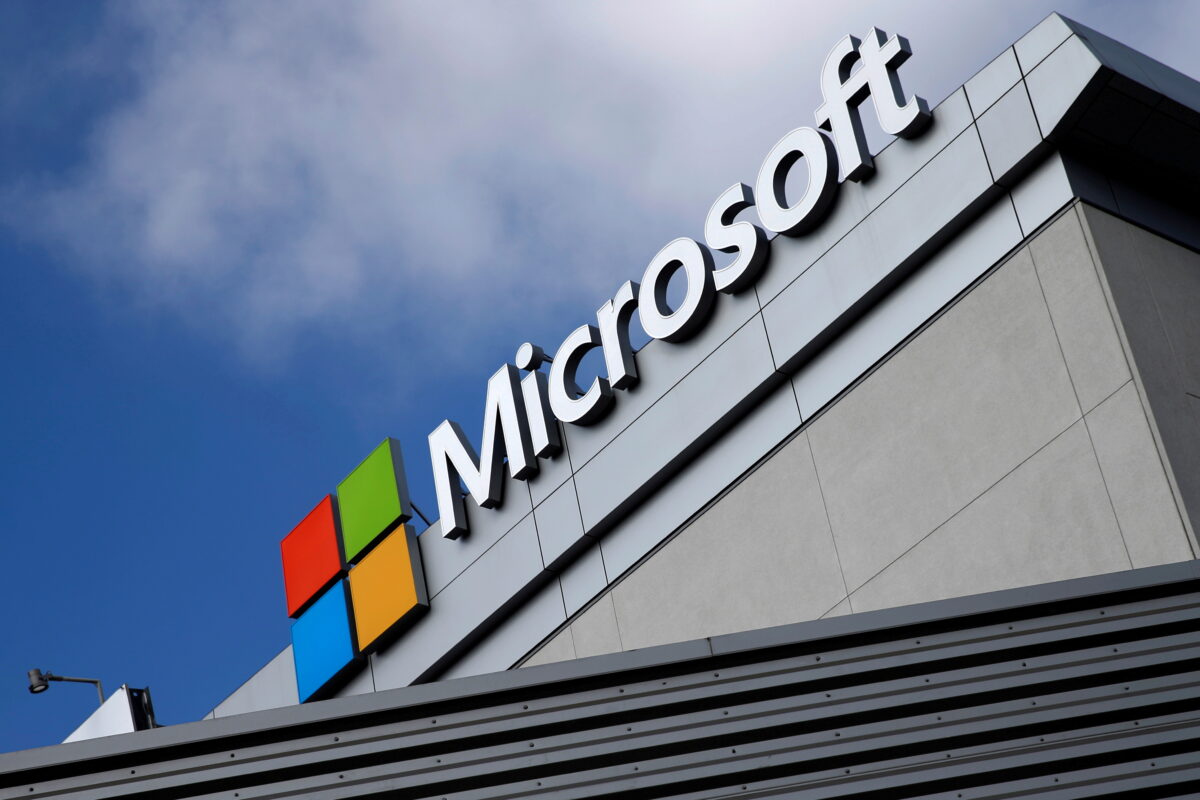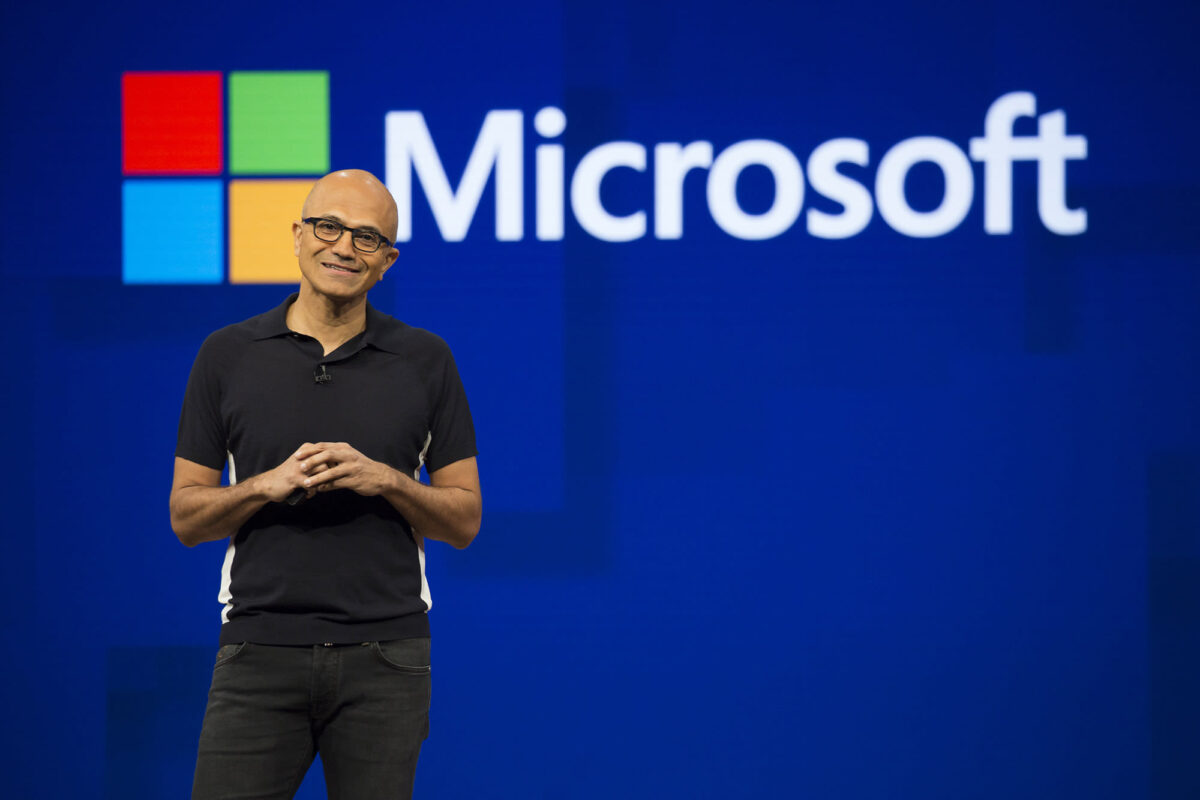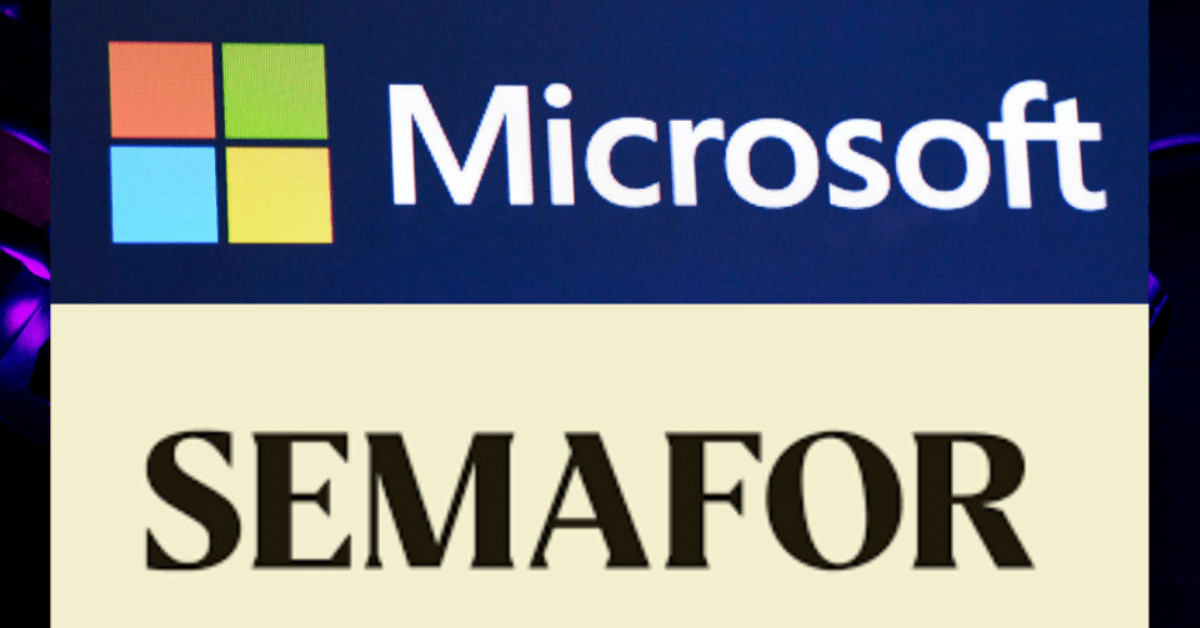In a groundbreaking collaboration, tech Giant Microsoft has partnered with the innovative media startup, Semafor, to pioneer the integration of AI chatbots into the realm of news story development. Termed “Signals,” this ambitious project seeks to revolutionize the news landscape by delivering a dynamic breaking news feed enriched with diverse perspectives on significant global events.

Empowering Journalists with AI Tools
While the project maintains human journalists at its forefront, the AI chatbot assumes a pivotal role as a formidable research tool. Tasked with sifting through vast troves of data, the AI chatbot generates concise summaries and preliminary drafts, expediting the editorial process without compromising journalistic integrity. Semafor elucidated on the project’s core objectives, stating, “Signals organizes information to bring both clarity and perspective to complex breaking news stories. Our journalists globally identify the central facts, curating key analyses and insights from a diverse array of news sources, including disparate viewpoints on the same issue.”
Augmented by AI tools, journalists gain access to news sources spanning multiple languages and geographical regions, thereby broadening their scope and enriching the reader experience with a spectrum of viewpoints. Semafor emphasized, “Through leveraging these AI research tools, our editors meticulously evaluate and corroborate sources, craft succinct summaries, and transparently reference and link readers to the original content.”
According to a detailed report by Ars Technica, Ben Smith, co-founder of Semafor, underscored that the content generated by Signals remains the exclusive domain of journalists, with AI serving as an auxiliary research assistant. However, Microsoft’s involvement transcends the mere provision of AI technology, with the company extending substantial financial support to Semafor. In an official statement, Microsoft underscored the symbiotic nature of the collaboration, affirming, “Semafor will partner with us to leverage AI tools in aiding journalists’ research, facilitating source discovery, translation, and beyond with Semafor Signals, empowering journalists to furnish audiences with a rich tapestry of credible local, national, and global perspectives
Nevertheless, Microsoft’s involvement in AI-driven initiatives has not been without controversy, as exemplified by a lawsuit filed by The New York Times over alleged data scraping for training AI language models. Despite such challenges, the collaboration between Microsoft and Semafor stands as a testament to the transformative potential of AI in reshaping the future of news dissemination and consumption.

Industry Collaboration with AI Tools
Microsoft is spearheading new programs to help organizations adopt responsible AI practices in newsgathering and operations, training a new generation of reporters in AI usage and fostering sustainable newsrooms for the future.
Semafor
Semafor collaborates with us to empower journalists with AI tools like Semafor Signals for research, source discovery, and translation, enriching content diversity for audiences worldwide.
The Craig Newmark Graduate School of Journalism
The Craig Newmark Graduate School of Journalism offers a tuition-free program on AI integration led by Nikita Roy, exploring AI’s role in journalism through a dynamic three-month hybrid program.
The Online News Association launches its AI in Journalism Initiative, empowering journalists and newsroom leaders to harness AI for audience engagement and business sustainability.
The GroundTruth Project
The GroundTruth Project introduces an AI track in its programs, aiming to enhance reporting efficiency and newsroom sustainability worldwide.
Nota
Nota expands its AI tools to over 100 newsrooms, including PROOF, a real-time recommendation widget enhancing content reach and engagement.
These collaborations, spanning academia, industry, and newsrooms, epitomize a collective effort to educate, innovate, and shape the future of news production through AI integration.
Microsoft’s Vision for AI Keyboard Adoption
Highlighting a monumental shift, Microsoft unveils its most significant keyboard update in three decades with the introduction of an artificial intelligence (AI) key. This innovative addition grants users access to Copilot, Microsoft’s cutting-edge AI tool, seamlessly integrated into new Windows 11 PCs.
As a major investor in OpenAI, the engine behind Copilot’s AI prowess, Microsoft reinforces its commitment to leveraging AI across its ecosystem. The incorporation of AI extends beyond keyboards, permeating products like Microsoft 365 and Bing search since 2023.
In contrast, rival Apple has long integrated a Siri button or option within the touch bar of MacBooks. Copilot’s multifaceted capabilities span from assisting users in tasks like searching and writing emails to creating images, marking a significant advancement in user productivity and efficiency.
Yusuf Mehdi, Microsoft’s executive vice president, lauds this transformative moment in a blog post, drawing parallels to the introduction of the Windows key nearly three decades ago. He underscores the AI key’s potential to simplify and amplify user experiences across Windows devices.
Anticipated to debut on new products starting February, these enhanced keyboards herald a new era of user interaction, firmly anchoring AI at the heart of Microsoft’s technological evolution.
In summary, the collaboration between Microsoft and Semafor marks a significant advancement in AI-driven news curation. Through initiatives like Signals, journalists are equipped with AI tools to enhance content diversity and audience engagement.
Microsoft’s commitment to responsible AI practices, coupled with collaborations across academia and industry, reflects a collective effort to shape the future of news production.The introduction of the AI keyboard, featuring Copilot, underscores Microsoft’s vision for user interaction and productivity, signaling a transformative era in technology.Despite challenges, the collaboration highlights a shared dedication to innovation and the evolution of journalism in the digital age.



